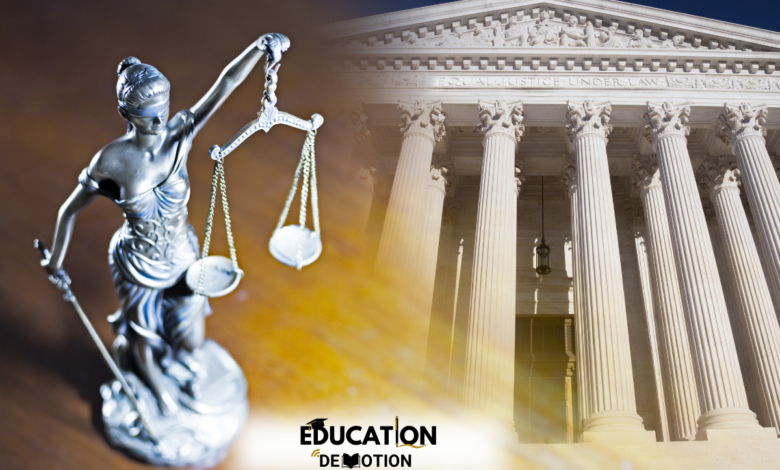What Is the Supreme Law of the Land? Explained Simply

The supreme law of the land is a concept often mentioned but not always fully understood. It’s more than a legal principle; it’s the foundation of governance in a country. In the United States, this term is specifically tied to the Constitution, a document that holds unparalleled authority. But what does it truly mean, and why does it matter? In this article, we’ll unpack the significance of the supreme law of the land, explain how it functions, and explore its implications in modern society.
What Is the Supreme Law of the Land?
At its core, the supreme law of the land refers to the highest form of legal authority in a nation. In the United States, the Constitution holds this title. It serves as the ultimate framework for how the government operates and ensures that no law or action can override its principles. Article VI of the U.S. Constitution explicitly states that the Constitution, federal laws made in accordance with it, and treaties signed under its authority are the supreme law of the land. This ensures that all branches of government and individual states remain subordinate to its principles.
For example, if a state law contradicts the Constitution, the state law is invalidated. This centralization of legal authority helps maintain uniformity and stability across the country.
Why Is the Constitution the Supreme Law of the Land?
The U.S. Constitution is considered the supreme law of the land because it establishes the basic legal framework that governs the entire nation. It outlines the separation of powers, delineates individual rights, and sets boundaries for governmental authority.
Additionally, it ensures that all other laws, whether they are state or federal, align with its principles. Without this hierarchical structure, legal inconsistencies could arise, causing confusion and potential conflicts between states and the federal government.
Transitioning to a broader view, the idea of having a supreme legal authority is not unique to the United States. Many countries have similar foundational documents or legal principles that guide their governance. However, the U.S. Constitution is one of the oldest and most influential examples.
The Role of Article VI in Defining the Supreme Law
Article VI of the Constitution is where the phrase “supreme law of the land” is explicitly mentioned. It not only establishes the supremacy of the Constitution but also requires that federal and state officials swear an oath to uphold it.
This provision ensures that:
- The Constitution takes precedence over state laws.
- No state or federal official can undermine its authority.
- All governmental actions must align with constitutional principles.
For instance, if a state attempts to pass legislation that contradicts the Constitution, such as laws infringing on freedom of speech or equal protection, those laws can be challenged and overturned in court. This system guarantees that the rights of individuals are protected consistently across the country.
How Does the Supreme Law Impact Federalism?
Federalism, the division of power between the national and state governments, is a cornerstone of the U.S. system. The supreme law of the land ensures that while states retain significant authority, they cannot overstep constitutional boundaries.
This balance prevents states from:
- Enforcing laws that contradict federal regulations.
- Discriminating against citizens in ways prohibited by the Constitution.
- Ignoring federally recognized rights, such as voting and due process.
For example, during the Civil Rights Movement, federal law played a crucial role in overturning discriminatory state laws. By invoking the supreme law of the land, activists ensured that state practices aligned with constitutional guarantees of equality and justice.
Supreme Law and the Role of Judicial Review
Judicial review is the process by which courts interpret the Constitution and ensure that laws comply with its principles. This process is essential in upholding the supreme law of the land. The U.S. Supreme Court, as the highest judicial authority, plays a key role in this system.
When conflicts arise between state laws, federal laws, or constitutional principles, courts step in to resolve these disputes. A landmark example is the case of Marbury v. Madison (1803), where judicial review was first established. Since then, the Supreme Court has been instrumental in interpreting and enforcing the Constitution.
Why Understanding the Supreme Law Matters
Understanding the supreme law of the land is crucial for citizens, legal professionals, and government officials alike. It ensures accountability, promotes justice, and protects individual rights.
Without this guiding principle:
- Governments could abuse their power.
- Individual freedoms might be compromised.
- Legal systems could become fragmented and inconsistent.
For citizens, knowing that the Constitution is the ultimate authority empowers them to advocate for their rights. Whether it’s freedom of speech, religion, or equal protection, the Constitution guarantees these liberties.
The Supreme Law of the Land Beyond Borders
While the term “supreme law of the land” is often associated with the United States, similar principles exist in other countries. For example:
- In Canada, the Constitution Act of 1982 is the highest legal authority.
- In Germany, the Basic Law serves as the foundation of governance.
- In the United Kingdom, parliamentary sovereignty functions as the supreme legal principle.
These examples show that having a central legal authority is a universal need, ensuring fairness and consistency in governance worldwide.
See Also; Romeo and Juliet Law Explained
Conclusion
The supreme law of the land is more than just a legal concept; it is the cornerstone of democracy, justice, and equality. By establishing the Constitution as the ultimate authority, the United States has created a system where individual rights are protected, and governmental power is held accountable. Understanding this principle not only enhances civic knowledge but also empowers citizens to actively engage in the democratic process. Whether at the national or state level, the supreme law ensures that fairness and justice prevail in every corner of the land.
FAQs
What happens if a state law conflicts with?
When a state law conflicts with the Constitution, the federal law prevails. Courts often invalidate state laws that contradict constitutional principles to ensure uniformity.
Can the Constitution be changed it ?
Yes, the Constitution can be amended through a rigorous process involving both Congress and the states. However, amendments require significant consensus, ensuring that changes are carefully considered.
How does it protect individual rights?
The Constitution guarantees fundamental rights, such as freedom of speech, religion, and due process. As the supreme law, it ensures that no other laws infringe upon these protections.
Who enforces that law ?
The judiciary, particularly the Supreme Court, enforces the Constitution by interpreting its principles and ensuring that all laws comply with it.
Why is the concept of the supreme law important?
It ensures legal consistency, protects individual freedoms, and prevents abuses of power by establishing a clear framework for governance.
Is the Constitution always the supreme law of the land?
In the U.S., yes. However, international treaties signed by the federal government and aligned with the Constitution also hold significant authority under Article VI.




